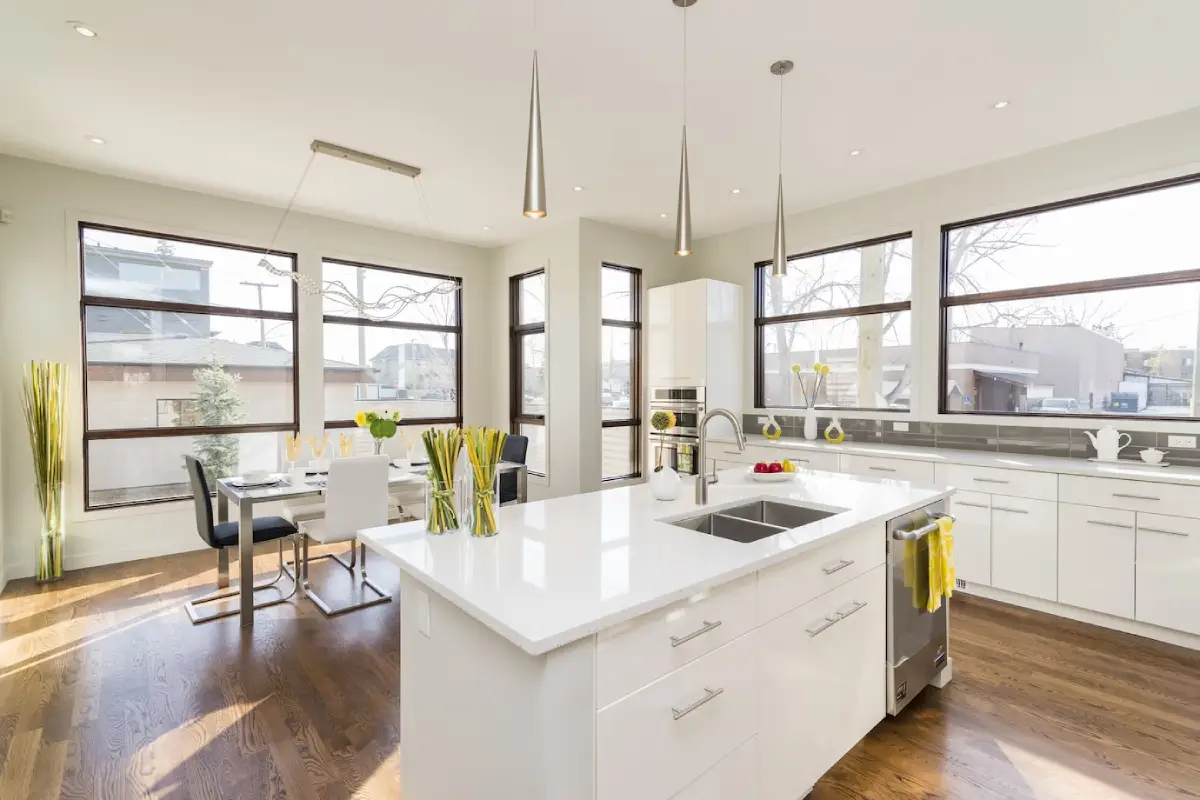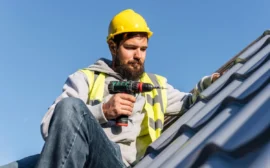Updating your home’s windows can be a significant investment, leading many homeowners to wonder whether this change will enhance their property value. New windows not only affect aesthetic appeal but also contribute to energy efficiency, security, and noise reduction. Understanding how these factors contribute to a home’s overall value is essential for making informed decisions about window upgrades.
The Impact of New Windows on Home Value
Replacing old windows with new ones can certainly increase a home’s value, but the extent of this increase depends on several factors. Prospective buyers often look for properties with modern features that offer both functional and aesthetic benefits. Here’s how new windows fit into that picture.
Energy Efficiency and Home Value
One of the primary reasons homeowners consider window replacements is the promise of improved energy efficiency. New windows can significantly reduce heating and cooling costs by minimizing drafts and improving insulation. Energy-efficient windows, such as those certified by ENERGY STAR, are appealing to buyers who are conscious of their long-term utility expenses.
Investing in energy-efficient windows can yield a return on investment (ROI) that translates into higher property values. On average, homeowners can expect to recoup approximately 70-80% of their window installation costs upon resale. This increase partly stems from the growing demand for eco-friendly homes that promise reduced energy expenditures.
Enhancing Curb Appeal
Another critical factor that makes new windows a worthwhile investment is their impact on a home’s curb appeal. Windows are an essential aspect of a home’s exterior and contribute significantly to its first impression. Modern window designs can transform an outdated facade into a sleek, polished appearance. When buyers perceive a property as well-maintained and visually appealing, they are often willing to pay more.
Different styles like double-glazed or triple-glazed windows not only enhance aesthetics but also offer additional benefits like increased durability and improved resale value. Homeowners should choose window styles that complement their home’s architectural design to maximize this impact.
Noise Reduction Benefits
In urban areas or locations with high noise pollution, homes with superior noise-reducing windows are particularly attractive to buyers. Investing in soundproof windows can dramatically improve the living conditions within a home by mitigating external noise. This feature is especially invaluable for homes near airports, busy roads, or industrial areas.
By offering a peaceful living environment, soundproof windows can make a property more desirable, potentially leading to a higher sale price. It is a feature that sets homes apart in competitive real estate markets, where buyers might be comparing multiple properties with similar attributes.
Cost vs. Value: Making Smart Investment Choices
While new windows can indeed enhance a home’s value, assessing the relationship between cost and anticipated value increase is crucial. Here are some aspects to consider when planning this investment.
Assessing Your Home’s Needs
Before deciding on new windows, it’s essential to evaluate your current windows’ condition and performance. If existing windows are relatively new and in good condition, the value added by replacing them might not justify the cost. However, for homes with outdated, non-functional, or broken windows, the investment could significantly boost value and appeal.
Conducting an energy audit can provide insights into how much energy savings new windows might generate. While some homes may benefit from simple improvements like repairing seals or adding storm panels, others, especially those in high-risk weather zones, might find greater value in a full upgrade to impact windows, which offer superior energy efficiency and storm protection. Choosing the right solution not only enhances comfort and safety but can also contribute to long-term savings and increased home value.
Material and Style Considerations
The choice of window material plays a crucial role in determining cost and value. Common materials include vinyl, wood, fiberglass, and aluminum, each having its advantages and disadvantages concerning durability, maintenance, and cost-effectiveness.
- Vinyl windows: Known for their affordability and low maintenance, vinyl windows are popular in mid-range homes. They offer good insulation but might lack the high-end aesthetic appeal of wood.
- Wood windows: Preferred for their classic look, wood windows can considerably increase a home’s value due to their aesthetic appeal. However, they require more maintenance to prevent rot and decay.
- Fiberglass windows: These are robust and energy-efficient, often preferred for their durability and low-maintenance needs. They fall on the higher end of the price scale but offer excellent long-term value.
- Aluminum windows: These provide a modern look and are incredibly durable, but they are less insulating compared to other materials, which can influence energy efficiency ratings.
Strategic Replacement Strategies
Instead of replacing all windows, strategic upgrades might offer better value. Focus on prominent or problematic areas, such as street-facing windows or those in heavily used rooms, to maximize your investment. Partial replacements can offer inhabitants the best of both worlds: immediate improvement in the home experience at a reduced cost compared to full-scale window replacement.
Market Trends and Regional Considerations
Home value improvements from new windows can vary based on geographic location and local market trends. In areas with extreme climates, such as the Northeast or Midwest, energy efficiency can be a more critical selling point. Conversely, in milder climates, aesthetic enhancements might offer better return rates.
Additionally, local property market conditions and trends dictate the importance of certain upgrades. For instance, in a buyer’s market, luxury features like high-quality windows can make a property stand out. Conversely, in a seller’s market, quick and cost-effective home improvements can expedite sales.
Conclusion: Weighing the Benefits
Investing in new windows is often a wise decision for enhancing home value, especially when driven by considerations of energy efficiency, curb appeal, and noise reduction. By choosing the right type of windows for your home and region, the return on investment can be substantial. When planned correctly, window replacement not only increases a property’s marketability but also elevates the homeowner’s enjoyment and experience of their own residence.
For homeowners contemplating this upgrade, thoughtful planning, coupled with a comprehensive understanding of market dynamics and personal goals, will ensure that the investment both meets immediate needs and increases long-term property value. Whether aiming to reduce energy costs, modernize aesthetics, or simply improve comfort, new windows can play a pivotal role in enhancing a home’s overall value.




